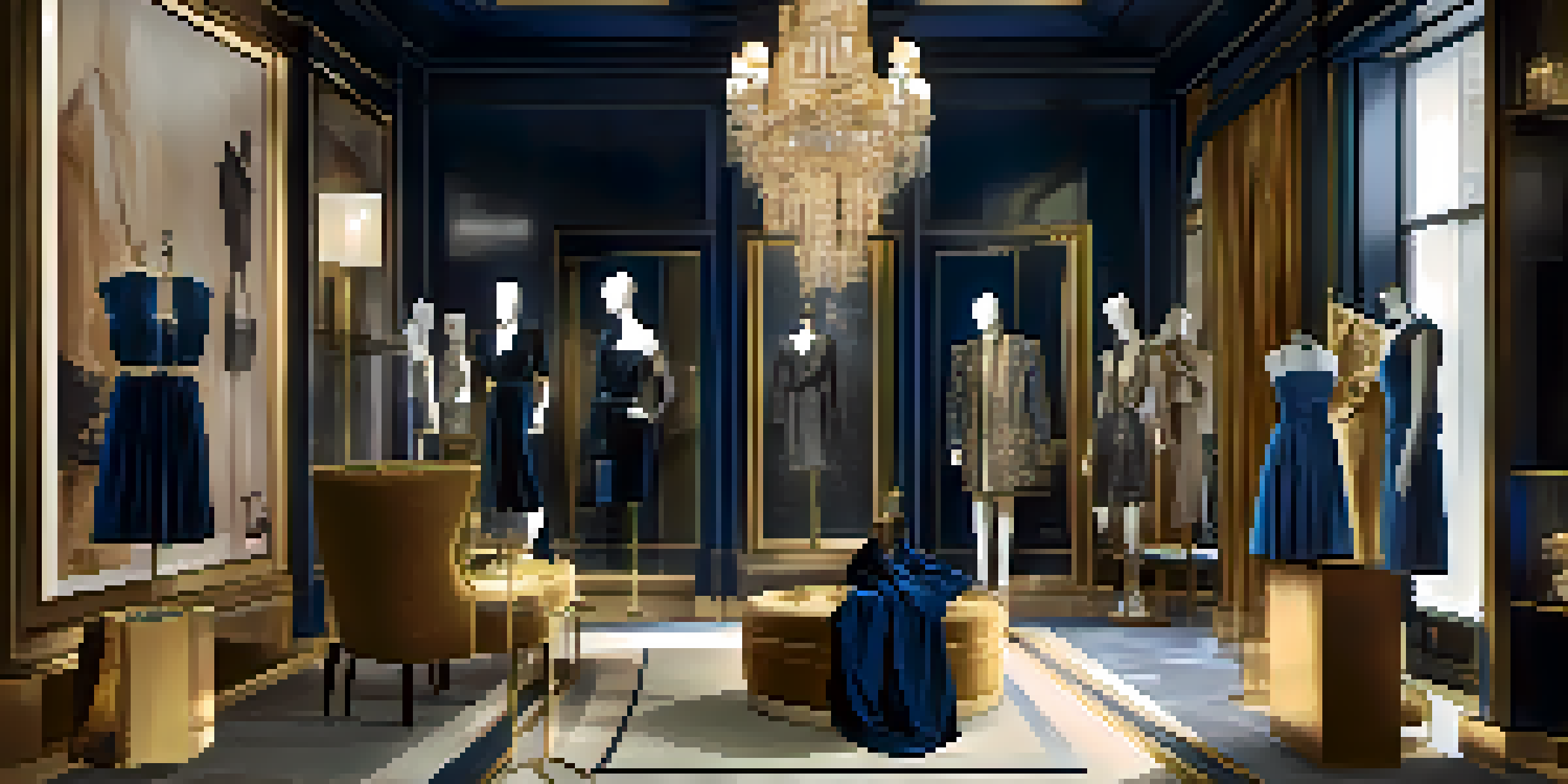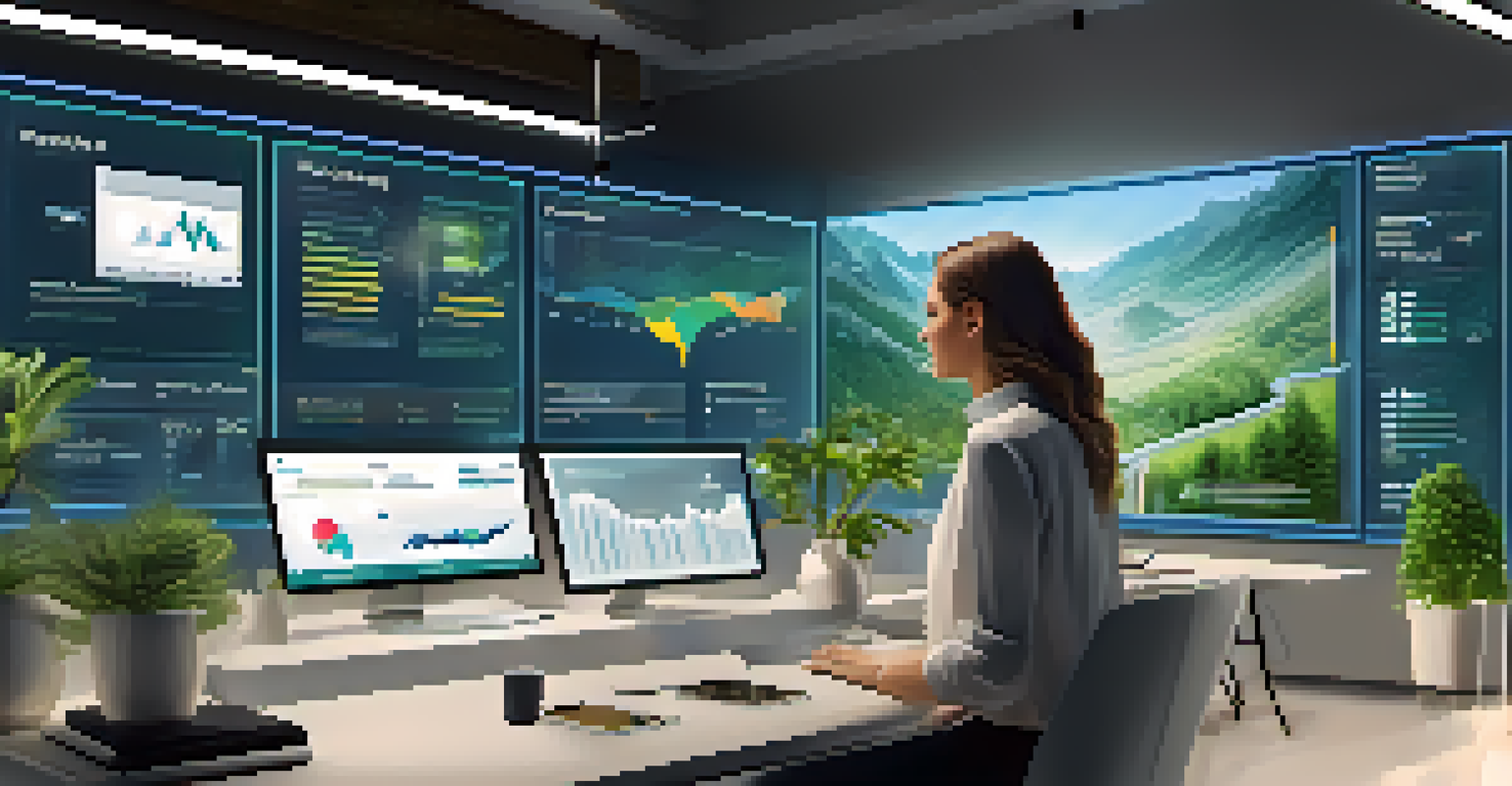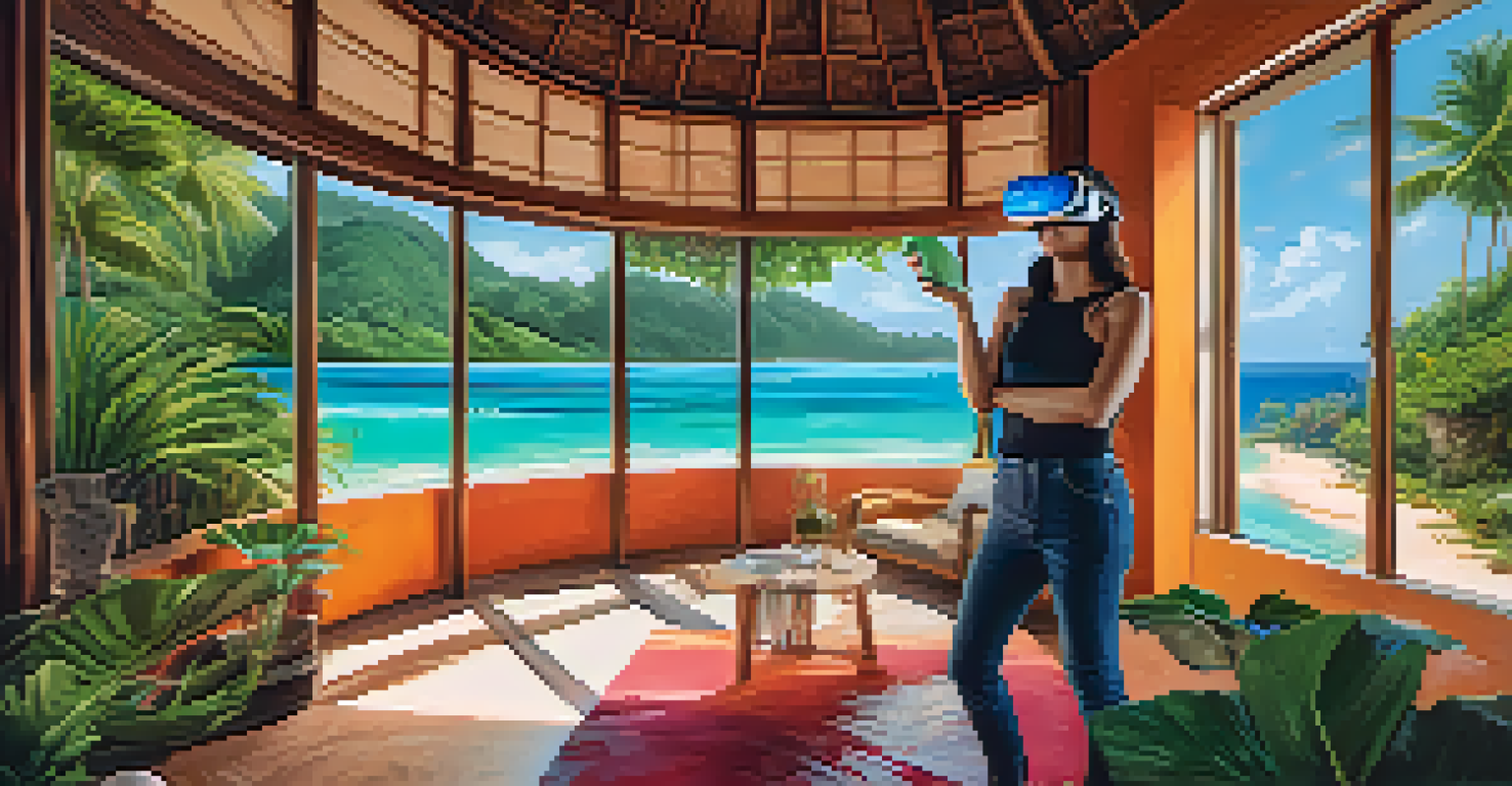How Technology Enhances Personalized Luxury Experiences

The Rise of Personalization in Luxury Markets
In today's luxury market, personalization has become a key differentiator. Consumers are no longer satisfied with one-size-fits-all offerings; they seek unique experiences tailored to their preferences. This shift is driven by a desire for authenticity and a deeper connection with brands, which technology can help facilitate.
In the age of personalization, the brands that succeed will be those that truly understand their customers' unique preferences and desires.
Luxury brands are leveraging data analytics to better understand customer behaviors and preferences. By collecting and analyzing information, they can create bespoke experiences that cater to individual tastes. This could mean anything from custom-tailored clothing to personalized travel itineraries, enhancing the overall luxury experience.
As consumers continue to demand more personalized interactions, brands that embrace this trend will stand out. Technology not only helps in delivering tailored experiences but also fosters loyalty and trust between the consumer and the brand. This evolving landscape is reshaping what luxury means in the modern world.
Data Analytics: The Backbone of Personalization
Data analytics plays a crucial role in creating personalized luxury experiences. By analyzing customer data, brands can uncover insights that inform their offerings and communications. For instance, understanding a customer's purchase history allows a luxury retailer to recommend products that align with their style and preferences.

Moreover, advanced analytics tools can track customer interactions across various channels, providing a holistic view of their journey. This enables brands to anticipate needs and preferences, ensuring that customers receive relevant and timely offers. The result is a more engaging experience that resonates with the individual.
Personalization Drives Luxury Appeal
Consumers now seek unique, tailored experiences from luxury brands, moving away from generic offerings.
As brands harness the power of data, they can create a seamless and cohesive experience for their customers. This not only enhances satisfaction but also drives repeat purchases, as consumers feel valued and understood. In a world where choices abound, this level of personalization can be a game-changer.
Artificial Intelligence: Personalization at Scale
Artificial intelligence (AI) has revolutionized how luxury brands approach personalization. By utilizing AI algorithms, brands can analyze vast amounts of data quickly and efficiently, identifying patterns that might be missed by human analysts. This allows for real-time personalization, enhancing the customer experience significantly.
The future of luxury is not about what you sell, but the experiences you create for your customers.
For example, AI chatbots can engage customers in meaningful conversations, recommending products or services based on their preferences. This not only improves customer service but also creates a more interactive and engaging shopping experience. Customers appreciate having their questions answered instantly, making them feel prioritized.
Furthermore, AI can help brands optimize their marketing campaigns by targeting the right audience with personalized messages. By understanding consumer behavior, brands can craft tailored content that resonates deeply, ensuring that their marketing efforts are not just seen, but felt. This level of engagement can lead to stronger emotional connections with consumers.
Virtual Reality: Immersive Personalized Experiences
Virtual reality (VR) is taking personalized luxury experiences to the next level by creating immersive environments. Imagine trying on a designer outfit without stepping into a store or exploring a luxury resort from your living room. VR technology offers consumers the chance to engage with products in a way that feels personal and unique.
For luxury travel brands, VR can transport potential travelers to exotic locations, allowing them to envision their trip before booking. This not only enhances the decision-making process but also creates excitement and anticipation. Consumers are more likely to invest in a luxury experience when they can visualize it so vividly.
Data Analytics Enhances Customer Insight
Luxury brands use data analytics to understand customer preferences, leading to personalized recommendations and improved satisfaction.
As VR technology advances, the possibilities for personalized luxury experiences become even more expansive. By blending the physical and digital worlds, brands can create unforgettable moments that cater to individual tastes and desires. This innovative approach is redefining luxury in the modern age.
Augmented Reality: Enhancing the Shopping Experience
Augmented reality (AR) is another powerful tool that luxury brands are utilizing to enhance personalization. By overlaying digital information onto the real world, AR allows consumers to visualize products in their own environment. For instance, a luxury furniture brand can enable customers to see how a piece would look in their home before making a purchase.
This tech-driven approach not only enhances the shopping experience but also instills confidence in consumers. When they can interact with products virtually, they are more likely to make informed decisions, leading to higher satisfaction and lower return rates. This is crucial in the luxury market, where quality and experience are paramount.
Furthermore, AR can facilitate personalized marketing efforts by tailoring experiences to individual preferences. By analyzing user interactions, brands can present relevant offers or product recommendations, making each shopping journey feel uniquely curated. This level of engagement builds a stronger connection between the consumer and the brand.
The Role of Mobile Apps in Personalized Luxury
Mobile apps have become essential tools for luxury brands aiming to deliver personalized experiences. They offer a convenient platform for consumers to engage with their favorite brands, making shopping and browsing easier than ever. Through these apps, brands can collect valuable data on user preferences and behaviors, paving the way for tailored experiences.
For example, a luxury fashion brand's app might suggest outfits based on past purchases or browsing history. This level of customization not only enhances the shopping experience but also increases the likelihood of conversions. Customers appreciate when brands anticipate their needs and make relevant suggestions.
Emerging Tech Redefines Luxury Experiences
Technologies like AI, VR, and AR are transforming how luxury brands create immersive and personalized interactions with consumers.
Moreover, mobile apps can facilitate direct communication between brands and consumers, allowing for personalized offers, promotions, and updates. This direct line fosters loyalty and encourages repeat engagement, as consumers feel connected to the brand. In an age where convenience is key, mobile apps are a powerful tool for enhancing personalized luxury experiences.
The Future of Personalized Luxury Experiences
Looking ahead, the future of personalized luxury experiences is bright, driven by continuous technological advancements. As brands adopt emerging technologies, they will be able to create even more immersive and tailored experiences for their customers. The potential for innovation in this space is limitless, as consumer expectations continue to evolve.
Sustainability and ethical considerations are also becoming increasingly important in the luxury market. Brands that can integrate personalized experiences with a commitment to sustainability will likely stand out. For instance, using technology to track the provenance of materials can appeal to socially conscious consumers looking for authenticity.

Ultimately, the combination of technology and personalization will redefine luxury in the coming years. As brands strive to meet the diverse needs of their customers, the luxury experience will become more inclusive, accessible, and meaningful. This evolution will not only enhance customer satisfaction but also shape the future of the luxury industry.